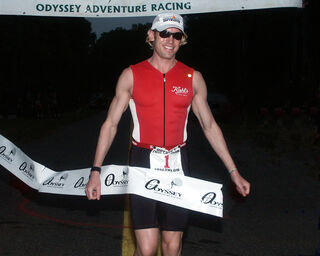Education
The Wu-Wei Paradox: Striving Less Generates More Success
A wu-wei mindset promotes effortless action and non-striving flow states.
Posted January 7, 2022 Reviewed by Davia Sills
Key points
- Wu-wei is an ancient philosophical stance that emerged from Taoism; this non-striving mindset facilitates "effortless action."
- Mindfulness practices that promote wu-wei mental states encourage flow and the effortlessness that athletes experience "in the zone."
- Implicit motor learning is key to wu-wei; it's easier to sustain a non-striving mindset when coordinated movements happen automatically.

It may seem counterintuitive, but a non-striving mindset (also known as wu-wei) increases an athlete's chances of getting "in the zone," performing effortlessly, and winning. The paradox of wu-wei is that striving less—not trying harder to win at all costs—often generates more success.
A wu-wei mindset involves letting go and not overthinking; this mental state (also known as Mushin) facilitates flow state experiences and a sense of effortlessness, which opens the door to peak performance.
A recently published (Kee et al., 2021) conceptual overview of the "wu-wei alternative" in the Asian Journal of Sport and Exercise Psychology examines the power of a non-striving mindset in the context of "flow, nonduality, Zen, Mushin, motivation, goals, and implicit learning."
"There have been discussions about the similarity between wu-wei and flow in the literature. With the increased adoption of mindfulness in sport psychology, we would like to convince colleagues in the field to consider the wu-wei alternative," first author Ying Hwa Kee said in a January 2022 news release. "Improving athletes' performance is only one aspect we look at. Further understanding of wu-wei and non-striving could well add new dimensions to the way that 'success' in sport is perceived."
Frictionless flow: How a wu-wei mindset facilities superfluidity
Superfluidity is a word I borrowed from the world of physics to describe rare and episodic moments of being so "in the zone" that there was absolutely zero friction or viscosity when I was running, biking, or swimming during a triathlon. My athletic career culminated in the early aughts when I won the nonstop Triple Ironman (7.2-mile swim, 336-mile bike, 78.6-mile run) Triathlon three years in a row.

My record-breaking time of 38 hours and 46 minutes in 2001 felt like an out-of-body experience. For example, during the three back-to-back marathons at the end of that year's Triple Ironman, I was running sub-four-hour marathons, but it felt like my feet weren't even touching the ground. This ultra-endurance endeavor felt effortless; there was no striving. My body traversed hundreds of miles in a non-striving state of inexertion (see: "Superfluidity and the Synergy of Your Four Brain Hemispheres").
After learning about the recent "wu-wei alternative" paper (2021) this week for the first time, I realize now that the superfluidity I experienced as a triathlete was directly tied to a "non-striving mindset," even though I didn't explicitly know there was a name for it at the time.
Since the 1990s, when I first read Mihaly Csikszentmihalyi's seminal book, Flow: The Psychology of Optimal Experience, I've been on the lookout for specific ways to increase one's odds of experiencing flow in sports and other life pursuits.
My life experience over the past four decades corroborates the new (2021) hypothesis that cultivating a wu-wei mindset promotes flow state experiences. As Kee et al. explain, "Letting oneself go with the flow seems to be synonymous with non-striving and wu-wei."
Non-striving mental states benefit from the automaticity of implicit learning.
Notably, implicit "non-thinking" motor learning and automaticity play a key role in the wu-wei alternative. In their paper, Kee et al. ask, "Alongside the issue of non-striving, another relevant question to address is whether conscious cognitive engagement is necessary for skills learning to occur?" They conclude that, in many ways, non-striving mental states rely on implicit muscle memory.
By not overly involving cerebral cognitive systems, an athlete increases the likelihood of experiencing frictionless flow. As Kee et al. explain:
"It can be interpreted that there might be a greater likelihood of one letting the action flow when skills are acquired through implicit learning. Conversely, when skills are learned through excessive cognitive processing, a stressful situation might cause the individual to return to the cognitive process more readily (i.e., overthinking, causing the actions not to flow freely)."
Although this paper doesn't make any specific references to the cerebellum, accumulating evidence suggests that optimizing the functional connectivity of cerebro-cerebellar neural networks can facilitate the automaticity associated with implicit learning (see: "The Brain Mechanics of Superfluid Coordination").
In conclusion, Kee et al. sum up, "Taken together, the value associated with downplaying cognitive processing while learning through implicit learning (i.e., less conscious involvement) suggest that implicit learning is relevant in the current discussion of wu-wei and non-striving."
References
Ying Hwa Kee, Chunxiao Li, Chun-Qing Zhang, John Chee Keng Wang. "The Wu-Wei Alternative: Effortless Action and Non-Striving in the Context of Mindfulness Practice and Performance in Sport." Asian Journal of Sport and Exercise Psychology (In press, corrected proof first available online: November 21, 2021) DOI: 10.1016/j.ajsep.2021.11.001




